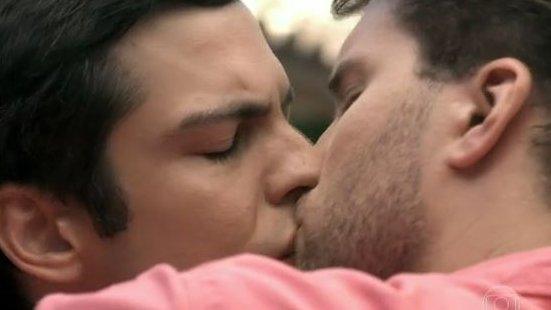The Brazilian footballer who never was
- Published
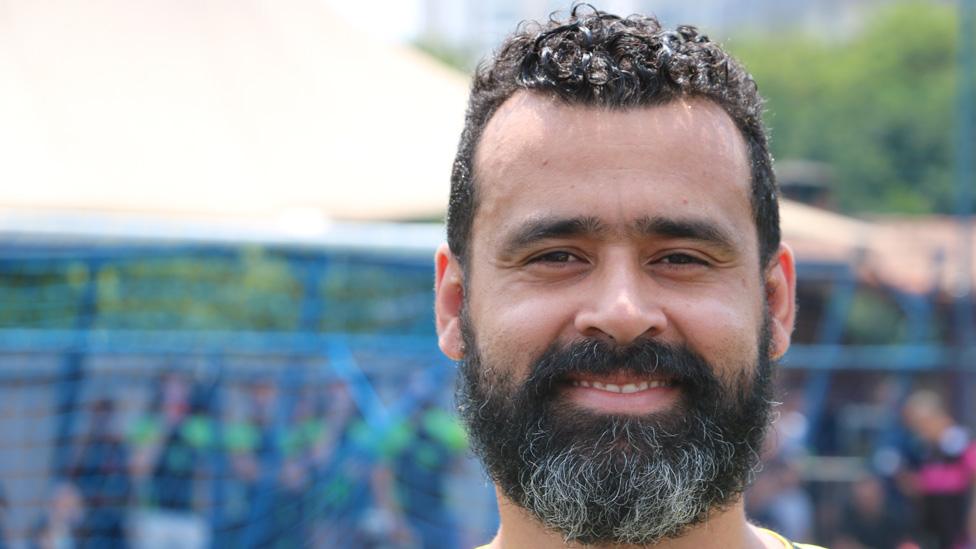
Football has quasi-religious status in Brazil and becoming a professional player is every Brazilian boy's dream. But prejudice within the game - and wider Brazilian society - means that, for some, that dream is cut short.
When Douglas Braga arrived in Rio de Janeiro at the age of 12, he was filled with excitement. "I had a lot of hope," he says. "I came here with a dream - I was ready to fight for it."
He'd been scouted by third-division Madureira, and after six years in the youth teams there, Douglas's dream started to become a reality.
At 18, he was signed by Botafogo, one of Rio's top clubs, which had recently won the Brazilian league. But something else was happening to Douglas at the same time.
'Toughest decision of my life'
"I started discovering my sexuality," he says. "I started seeing that I had desires and that it was for men."

You may also be interested in:

As his career progressed, training with players who would go on to play for Brazil, and making appearances for the first team, Douglas realised he could not carry on playing football and be an out gay man.
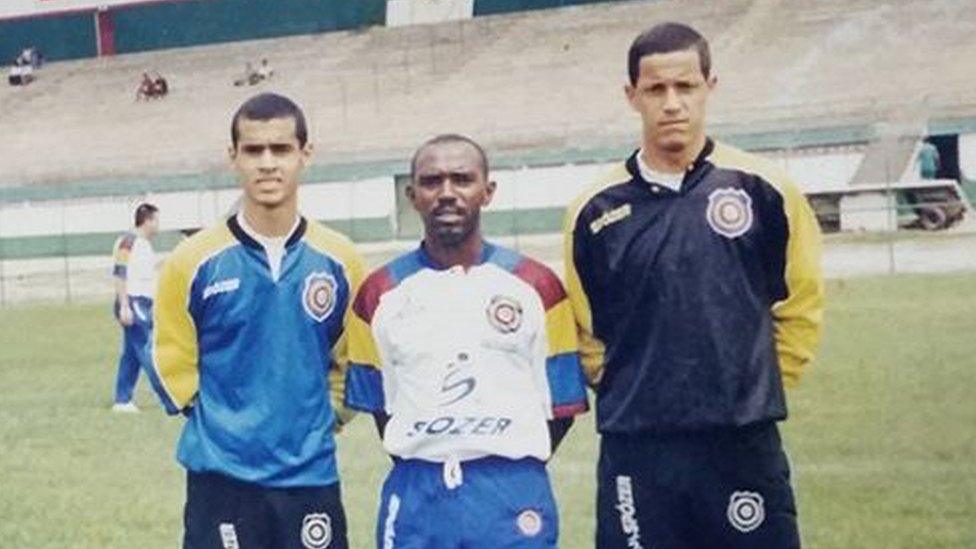
When he was 17 Douglas (left) was playing for Madureira's youth team
"It was a choice that either you're yourself, or you're a footballer. It just wasn't possible to be both." At 21, he quit football. It was the toughest decision of his life.
"That day that I decided not to play, I cried so much," he remembers. "I walked around for hours crying."
For all the flamboyance of its annual carnival, Brazil is a deeply homophobic country, particularly when it comes to football. The people we speak to tell us what seems obvious - of course there are gay men playing professional football in Brazil. But no top level player has ever come out.
Listen to the chants at a football match or talk to the fans here and it is not hard to see why.
One of the most common taunts directed at opposing players is "viado", which translates as "faggot".
At a home game of the table-topping São Paulo team Palmeiras, supporters tell us there is "not really space" for gay men to play professional football in Brazil and that the supporters would not want to watch gay guys playing.
'Macho sport'
One fan, wearing the branded vest of the Palmeiras supporters' club, says there is no chance a gay man could ever play for his team: "Football is a macho sport. It's a place for men."
During the recent presidential election campaign in Brazil, some other Palmeiras fans were filmed on a mobile phone in a São Paulo metro station chanting: "Look out queers, Bolsonaro's going to kill the faggots!"
Jair Bolsonaro, who was elected president last year and took office on 1 January, has described himself as a "proud homophobe" and said that if he saw two men kissing he would physically attack them.
Watch: Four things about Brazil's new president
According to one Brazilian human rights group, 387 LGBT Brazilians were murdered in trans- and homophobic attacks in 2017, a significant increase on the previous year.
Despite this hostile atmosphere, Douglas is part of a group of men fighting back against homophobic prejudice in Brazilian football and wider society.
Back on the pitch
Fifteen years after that gut-wrenching decision to leave football behind, he is back on the pitch, playing for a gay amateur team called BeesCats.
His teammate, André Machado, founded BeesCats so LGBT footballers could come together to play in Rio. It was such a success, he helped other gay teams to form around the country and then, just over a year ago, started an LGBT tournament called the Champions LiGay.
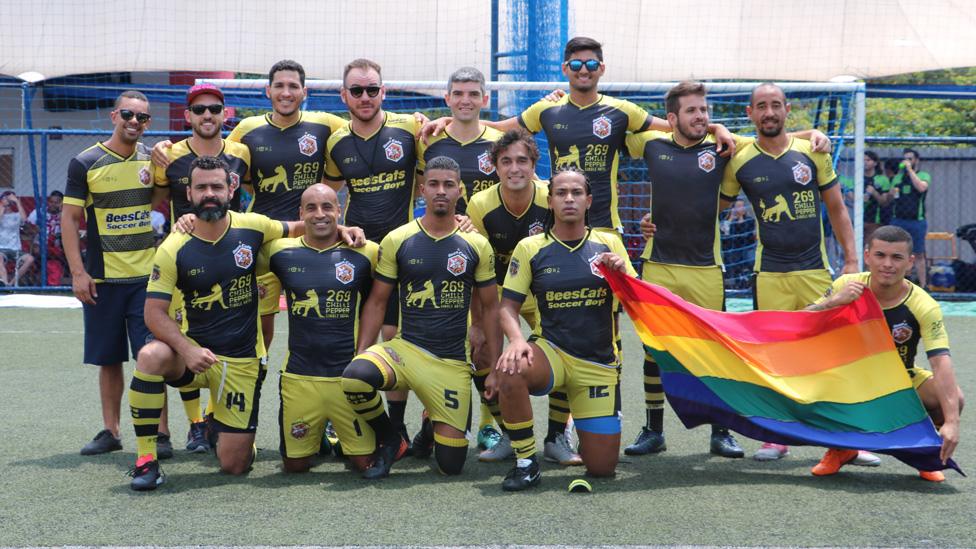
Douglas and André (bottom row, first and second from left) both play for BeesCats
"The LiGay is made for us to play soccer," André says. "We want to play soccer in a safe place."
The third Champions LiGay, held in São Paulo, is the biggest yet. There's a loud, colourful, party atmosphere, and the football is of a high standard.
BeesCats get knocked out in the quarter-finals and Douglas is frustrated they did not do better. But deeper down, there is a bigger disappointment - that his dream of being a pro was cut short.
"It hurts, seeing my friends from back then still playing as professionals," he says. "It really does still hurt today."
In the hostile landscape in which gay Brazilians now find themselves, the prospects for the Douglases of the future look uncertain at best.
But, despite the election of a new homophobic president, the tournament's founder, André, is defiant. "Now I'm so sad with Bolsonaro," he says.
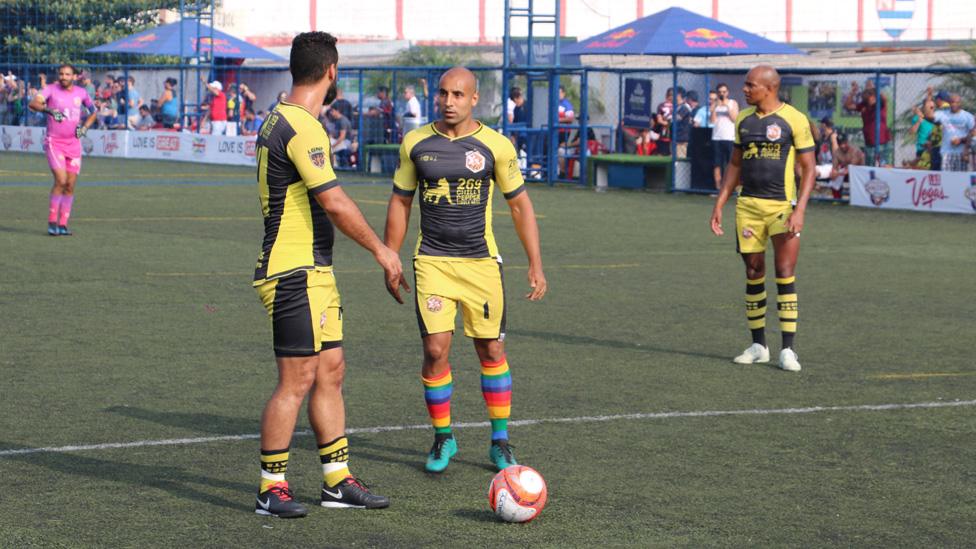
André says he thinks resistance to President Bolsonaro's homophobia will grow
"But I think the resistance will grow a lot in the next few years."
Is the Champions LiGay part of the resistance? "Totally. I think we have in these two days, maybe 1,000 people here. And I think in the other Champions LiGay we will be more and more people who want to be a part of this."
Find out more: Listen to David Baker's report, The Brazilian Footballer Who Never Was, on Listen to David Baker's report, The Brazilian Footballer Who Never Was, on Crossing Continents on BBC Radio 4 if you are in the UK or on Assignment on BBC World Service.
- Published20 September 2017
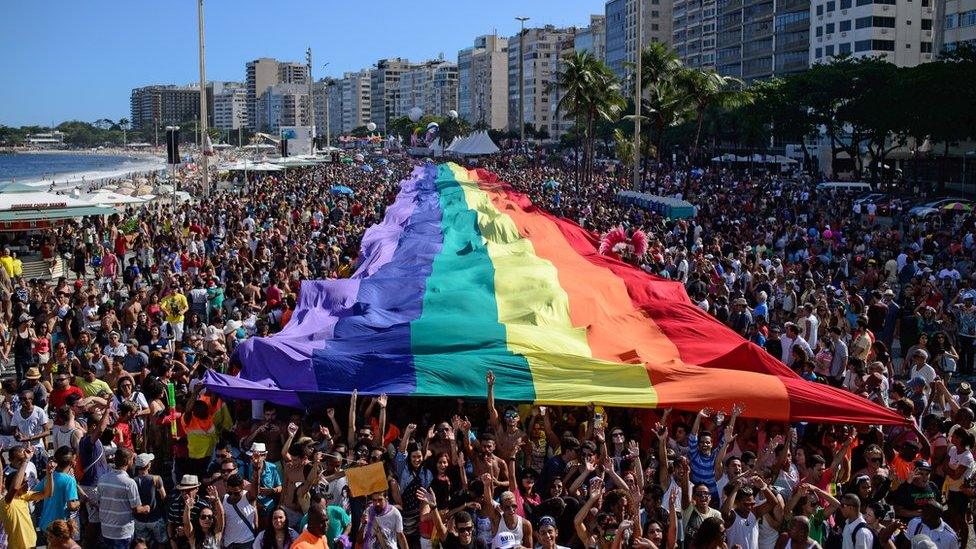
- Published19 June 2017
- Published3 February 2014
